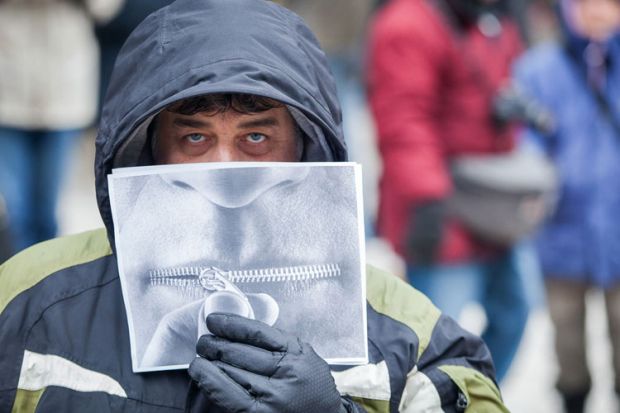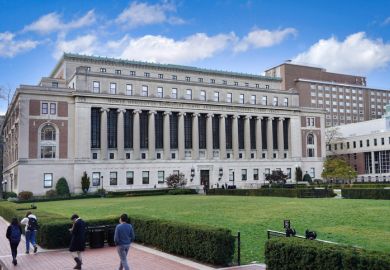Source: PA
The government has been criticised for continuing to pursue legislation that will have a “chilling effect” on campus debate while championing freedom of speech in the wake of the Paris terror attacks.
Smita Jamdar, head of education at SGH Martineau solicitors, said the government’s vow to stand up for such values was “incompatible” with the Counter-Terrorism and Security Bill, which had its second reading in the House of Lords this week.
Her comments came as a group of MPs on the Joint Committee on Human Rights warned that new powers outlined in the bill could “seriously inhibit” academic debate in universities.
The bill would give the home secretary the ultimate power to ban “extremist” speakers from campuses if certain conditions are not met. As well as this, it would place a duty on specified public authorities, including higher education institutions, to “have due regard, in the exercise of its functions, to the need to prevent people from being drawn into terrorism”.
But in a report published on 12 January, the select committee warned that terms such as “extremist” and “radical” were too broad and could stifle freedom of expression and it suggested that universities should be “excluded” from the legislation.
The day before, David Cameron joined millions of people lining the streets of Paris in solidarity with the victims of the terrorist attacks, which killed 17 people, including 12 during an assault on the offices of satirical magazine Charlie Hebdo.
“You can’t, on the one hand, say that what happened in Paris is wrong and an issue of freedom of speech and, on the other, say that it is OK for us to curtail freedom of speech, because our motives are much more noble and necessary for the security of the nation,” said Ms Jamdar.
She said that the proposed UK counter-terrorism laws could have “a chilling effect on debate on campus because people are going to feel very much like they’re being watched and the minute they step out of line they might get reported”.
“To my mind, there is no way that legislation can pass and not require people to be very careful about what they say and how they express it,” she said.
Martin Hall, the former vice-chancellor at the University of Salford, who warned in Times Higher Education last week that the new powers in the bill could be used to suppress “any radical opposition to the status quo”, suggested that the government was playing into the hands of extremists.
He said the “whole point” of attacks like those in Paris was “to provoke a massive overreaction and that then generates the crisis it is intended to produce. The idea is to provoke Western states into highly repressive measures that themselves generate resentment.”
Richard Black, pro-director (research and enterprise) at Soas, University of London, said that events in Paris should be used to focus minds on “the importance of free speech” in academia.
“Universities can be – and generally are – places in which ideas can be expressed and challenged openly and properly, without resort to violence or extremism,” he said.
“It is vitally important that we strengthen their role in fostering debate and promoting dialogue, rather than retreating to tit for tat infringements of freedom of expression.”
Register to continue
Why register?
- Registration is free and only takes a moment
- Once registered, you can read 3 articles a month
- Sign up for our newsletter
Subscribe
Or subscribe for unlimited access to:
- Unlimited access to news, views, insights & reviews
- Digital editions
- Digital access to THE’s university and college rankings analysis
Already registered or a current subscriber? Login





